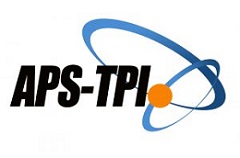Application of Scientific-Based Electronic Natural Sciences Module to Improve Learning Outcomes in Knowledge Aspects of Vibration and Wave Materials in a Pandemic Period
Abstract
Keywords
Full Text:
PDFReferences
Ahmed, S., Shehata, M., & Hassanien, M. (2020). Emerging Faculty Needs for Enhancing Student Engagement on a Virtual Platform. MedEdPublish, 1–5. https://doi.org/https://doi.org/10.15694/mep.2020.000075.1
Asmuni, A. (2020). Problematika Pembelajaran Daring di Masa Pandemi Covid-19 dan Solusi Pemecahannya. Jurnal Paedagogy, 7(4), 281. https://doi.org/10.33394/jp.v7i4.2941
Arriany, Ike., Ibrahim N., Sukardjo M. (2020). Pengembangan Modul Online untuk Meningkatkan Hasil Belajar Ilmu Pengetahuan Sosial (IPS). Jurnal Inovasi Teknologi Pendidikan 7(1). 52-66. https://doi.org/10.21831/jitp.v7i1.23605
Barthlow, Michele J. Dan Scott B. Watson. 2011. “The Effectiveness of Process-Oriented Guided Inquiry Learning to Reduce Alternatif Conceptions in Secondary Chemistry”. Volume 114. Nomor 5 (hlm. 246– 255).
Basar, A. M., Islam, P. A., Nurul, S., Cikarang, F., & Bekasi, B. (2021). Problematika Pembelajaran Jarak Jauh Pada Masa Pandemi Covid-19 ( Studi Kasus di SMPIT Nurul Fajri – Cikarang Barat – Bekasi ). 2(1), 208–218. https://doi.org/10.51276/edu.v2i1.112
Ditasari, Rahma., Endah P., Kasmui. (2013). Pengembangan Modul Pembelajaran IPA Terpadu Berpendekatan Keterampilan Proses pada Tema Dampak Limbah Rumah Tangga Terhadap Lingkungan untuk SMP Kelas VIII. Unnes Science Education Journal 2 (2), 329-336
Faour, H., Hammoudeh, M., & Ghamdi, A. Al. (2012). Enhancing student learning experience and satisfaction using Virtual Learning Environments. 2012 International Conference on Education and E-Learning Innovations, ICEELI 2012, (July), 11–13. https://doi.org/10.1109/ICEELI.2012.6360588
Galton, M. (1979). Some characteristics of effective science teaching. European Journal of Science Education, 1(1), 75–86. https://doi.org/10.1080/0140528790010109
Gozali, F., & Lo, B. (2012). Pemanfaatan Teknologi Open Source Dalam Pengembangan Proses Belajar Jarak Jauh di Perguruan Tinggi. Jurnal Nasional Pendidikan Teknik Informatika (JANAPATI), 1(1), 47–57. https://doi.org/10.23887/janapati.v1i1.9767
Hanson, D. (2010). Instructor’s Guide to Process-Oriented Guided-Inquiry Learning. (hlm.1-54). New York: Department of Chemistry Stony Brook University.
Hosnan. 2014. Pendekatan Saintifik dan Kontekstual dalam Pembelajaran Abad 21. Bogor : Ghalia Indonesia.
Idrus, Irham., Irwadi A., Rio K. (2020). Pendekatan Saintifik untuk Meningkatkan Aktivitas dan Hasil Belajar IPA Siswa SMP. Jurnal Pendidikan dan Pembelajaran Biologi 4 (2)I, 139-145.
Imansari, N., & Sunaryantiningsih, I. (2017). Pengaruh Penggunaan E-Modul Interaktif Terhadap Hasil Belajar Mahasiswa pada Materi Kesehatan dan Keselamatan Kerja. VOLT : Jurnal Ilmiah Pendidikan Teknik Elektro, 2(1), 11. https://doi.org/10.30870/volt.v2i1.1478.
Kusuma, J. W., & Hamidah. (2020). Platform Whatsapp Group Dan Webinar Zoom Dalam Pembelajaran Jarak Jauh Pada Masa Pandemik Covid 19. Jurnal Ilmiah Pendidikan Matematika Volume, 5(1).
Malyana, A. (2020). Pelaksanaan Pembelajaran Daring Dan Luring Dengan Metode Bimbingan Berkelanjutan Pada Guru Sekolah Dasar Di Teluk Betung Utara Bandar Lampung. Pedagogia: Jurnal Ilmiah Pendidikan Dasar Indonesia, 2(1), 67–76. https://doi.org/10.52217/pedagogia.v2i1.640.
Muslihati. 2005. Belajar dan Pembelajaran. Malang: Lembaga Pendidikan Pembelajaran (LP3) UM.
Mustaji, 2008. Penyusunan Modul, Jakarta; Rajawali Perss
Mustika, Z. (2015). Urgenitas Media Dalam Mendukung Proses Pembelajaran Yang Kondusif. CIRCUIT: Jurnal Ilmiah Pendidikan Teknik Elektro, 1(1), 60–73. https://doi.org/10.22373/crc.v1i1.311.
Nakayama, M, & Yamamoto. (2006). Investigating the impact of learner characteristics on blended learning among Japanese Students. Proceedings of the International Conference on E-Learning, ICEL, 2006-Janua(3), 361–370.
Saifuddin Azwar, 2000 . Tes Prestasi: Fungsi dan Pengembangan Pengukuran Prestasi Belajar. Yogyakarta: Pustaka Pelajar.
Sugiyono. 2013. Metode Penelitian Pendidikan Pendekatan Kuantitatif, Kualitatif, dan R&D. Bandung: Alfabeta.
Sun, L., Tang, Y., & Zuo, W. (2020). Coronavirus pushes education online. Nature Materials, 20200205. https://doi.org/10.1038/s41563-020-0678-8
Szép, S. G. (2017). Konzeption und Implementierung eines neuartigen E-Learning-Moduls mit EbMLerninhalten im Fach ZahnerhaltungskundeConception and implementation of a novel E-learning module with EbM learning contents in operative dentistry. Zeitschrift Für Evidenz, Fortbildung Und Qualität Im Gesundheitswesen, 127–128, 72–78. https://doi.org/10.1016/j.zefq.2017.09.001
Trapsilo, Budi., Roesminingsih., Subroto, WT. (2016). Penerapan Pendekatan Saintifik untuk Meningkatkan Hasil Belajar Siswa pada Mata Pelajaran IPS Materi Perkembangan Teknologi Kelas IV SDN Kluwih 02 Bandarbatang. Jurnal Kajian Pendidikan dan Hasil Penelitian 2(1). 112-117
Tyasning, D. M., Masykuri, M., & Mulyani, S. (2015). Pembelajaran Kimia Menggunakan Model Process- Oriented Guided Inquiry Learning (POGIL) dan Problem Based Learning (PBL) Ditinjau Dari Kemampuan Memori Dan Kreativitas Pada Materi Hidrokarbon Kelas X SMA. Paedagogia, 18(2), 36-47.
Walker, L., & Warfa, A. R. M. (2017). Process oriented guided inquiry learning (POGIL) marginally effects student achievement measures but substantially increases the odds of passing a course. PLoS ONE, 12(10), 1–17. https://doi.org/10.1371/journal.pone.0186203
Yoga Purandina, I. P., & Astra Winaya, I. M. (2020). Pendidikan Karakter di Lingkungan Keluarga Selama Pembelajaran Jarak Jauh pada Masa Pandemi COVID-19. Cetta: Jurnal Ilmu Pendidikan, 3(2), 270– 290. https://doi.org/10.37329/cetta.v3i2.454.
Refbacks
- There are currently no refbacks.





.png)













